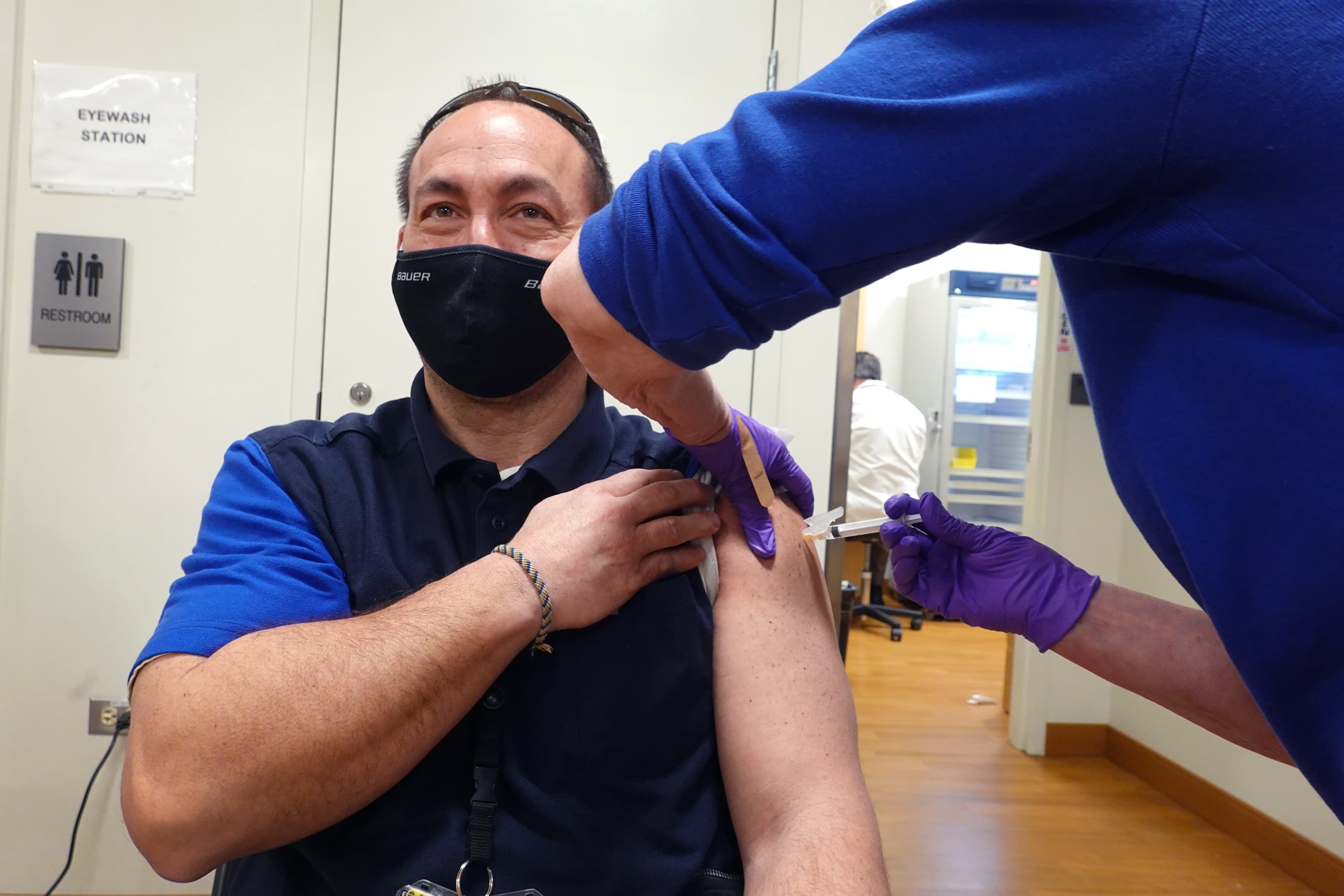As cases of the delta variant continue to raise concerns across the U.S., many are wondering what other variants are out there and which ones we should be concerned about.
According to the Centers for Disease Control and Prevention, variants of the coronavirus were expected.
"Viruses constantly change through mutation, and new variants of a virus are expected to occur," the CDC's website reads. "Sometimes new variants emerge and disappear. Other times, new variants persist. Numerous variants of the virus that causes COVID-19 are being tracked in the United States and globally during this pandemic."
Get New England news, weather forecasts and entertainment stories to your inbox. Sign up for NECN newsletters.
As the variants continue to spread, the agency suggests that vaccinations and following health protocols are the best way to slow the spread. And while all COVID-19 tests can detect different variants, they will not tell you which variant you have.
Some variants seem to spread more easily and quickly than others, according to the CDC, which may lead to more cases of COVID-19.
Variants are categorized as "variants of interest," "variants of concern" and "variants of high consequence."
In the U.S. and around the globe, there are currently four variants labeled "variants of concern" by the CDC and the World Health Organization.
So which variants are being tracked so far? Here's what we know:
Alpha Variant
Also known as B.1.1.7, the alpha variant was first identified in the United Kingdom and quickly spread to the most prevalent variant in the U.S., before the delta variant took hold.
The alpha variant "spreads much faster than other variants" and "may potentially cause more people to get sicker and to die," according to the CDC.
Vaccines currently being administered in the U.S. work against this variant, though some breakthrough cases have been reported. The vaccines do however continue to prove effective against severe illness, hospitalization and death, the CDC reports.
Beta Variant
Also known as B.1.315, the beta variant was first identified in South Africa.
The beta variant "may spread faster than other variants" but current data has shown no sign the variant causes "more severe illness or death than other variants," according to the CDC.
Vaccines currently being administered in the U.S. work against this variant, though some breakthrough cases have been reported. The vaccines do however continue to prove effective against severe illness, hospitalization and death, the CDC reports.
But when it comes to treating cases of this variant, certain monoclonal antibody treatments are less effective.
Gamma Variant
Also known as P.1, the gamma variant was first identified in Japan and Brazil.
While this variant does appear to spread faster than other, current data has shown no sign the variant causes "more severe illness or death than other variants," according to the CDC.
Vaccines currently being administered in the U.S. work against this variant, though some breakthrough cases have been reported. The vaccines do however continue to prove effective against severe illness, hospitalization and death, the CDC reports.
But when it comes to treating cases of this variant, certain monoclonal antibody treatments are less effective.
Delta Variant
Also known as B.1.617.2, the delta variant was first identified in India and is now the responsible for most COVID cases in the U.S.
The delta variant "spreads much faster than other variants" and "may cause more severe cases than other variants," according to the CDC.
Delta's speed and high transmissibility makes it able to "pick off the more vulnerable more efficiently than previous variants," Dr. Mike Ryan, executive director of the WHO's health emergencies program, said during a news conference on June 21.
The delta variant "poses a particular threat to our young people," White House coronavirus response coordinator Jeff Zients said at a press briefing last month.
How do vaccines work against this variant?
"Infections happen in only a small proportion of people who are fully vaccinated, even with the delta variant," the CDC states. "Some breakthrough infections are expected, but remain rare. However, preliminary evidence suggests that fully vaccinated people who do become infected with the Delta variant can spread the virus to others."
When it comes to treating cases of this variant, certain monoclonal antibody treatments are less effective.
There's also been some discussion about a so-called "delta plus" variant.
What other variants are being monitored?
In addition to the four variants of concern, there are also a number of "variants of interest."
According to WHO, variants of interest include Eta, Iota, Kappa and Lambda.
The CDC states that a variant is classified as a variant of interest if it shows "specific genetic markers that have been associated with changes to receptor binding, reduced neutralization by antibodies generated against previous infection or vaccination, reduced efficacy of treatments, potential diagnostic impact, or predicted increase in transmissibility or disease severity."
Eta Variant: First identified in the United Kingdom and Nigeria, the Eta variant is being monitored for its potential to reduce the effectiveness of some monoclonal antibody treatments, according to the CDC. So far, cases have not been identified in the U.S.
Iota Variant: The Iota variant was first identified in New York. It is being watched for "reduced susceptibility to the combination of bamlanivimab and etesevimab monoclonal antibody treatment," though it's not clear what impact that would have as alternative monoclonal antibody treatments are available.
Lambda Variant: The lambda variant is not listed as a variant of interest by the CDC, but it is listed by WHO. So far, the “variant of interest” has been detected in 29 countries, and it may spread more quickly than milder versions of the coronavirus. Also known as C.37, the variant has been spreading rapidly in South America, particularly in Peru, where the earliest documented samples of the virus were detected in December 2020. In its report in mid-June, the WHO reported that "lambda has been associated with substantive rates of community transmission in multiple countries, with rising prevalence over time concurrent with increased Covid-19 incidence" and that more investigations would be carried out into the variant.
Other Variants: Other variants of interest identified by the CDC include: B.1.617.3, first identified in India and B.1.429 and B.1.427, both identified out of California.




